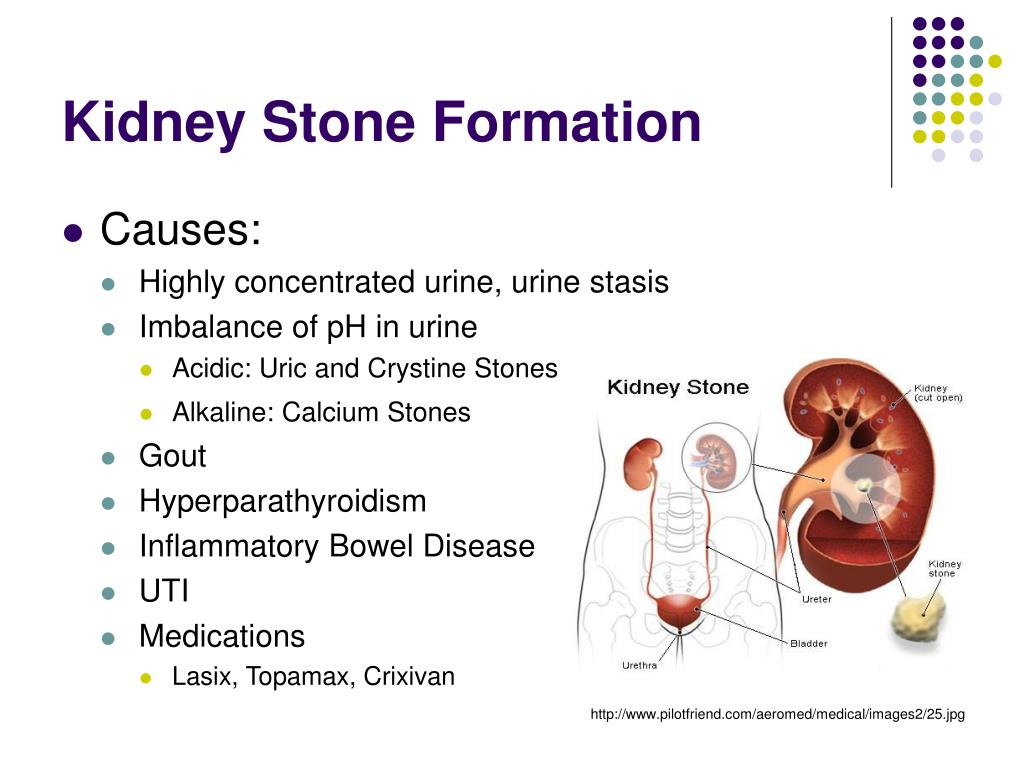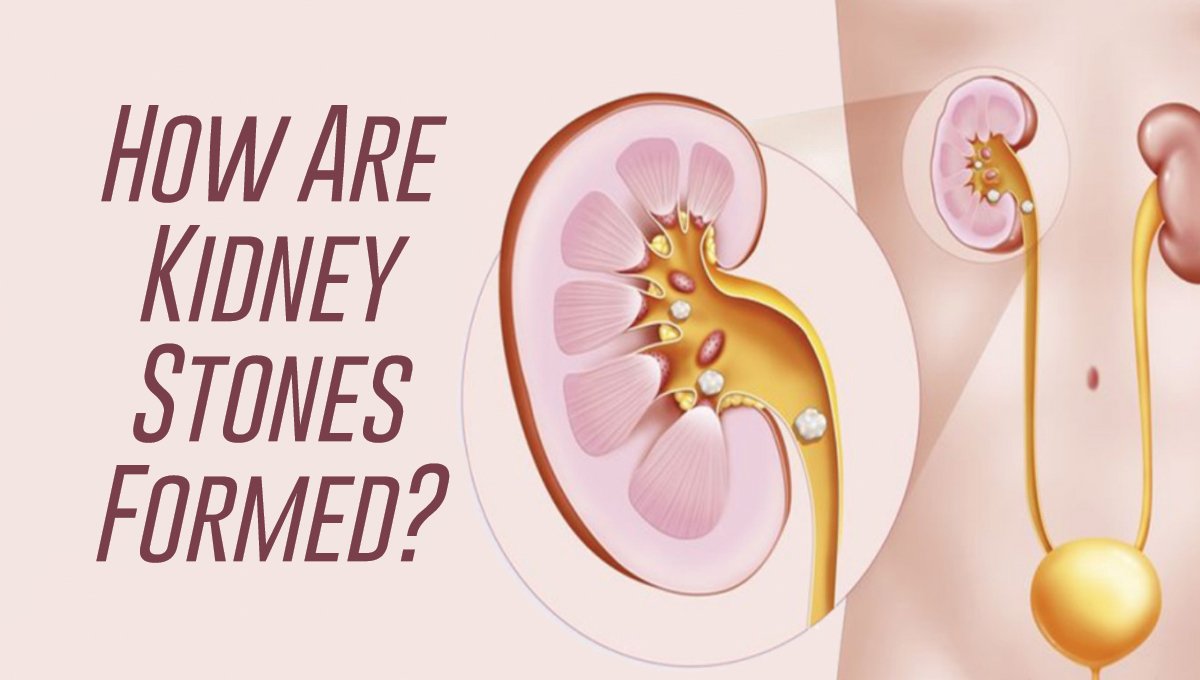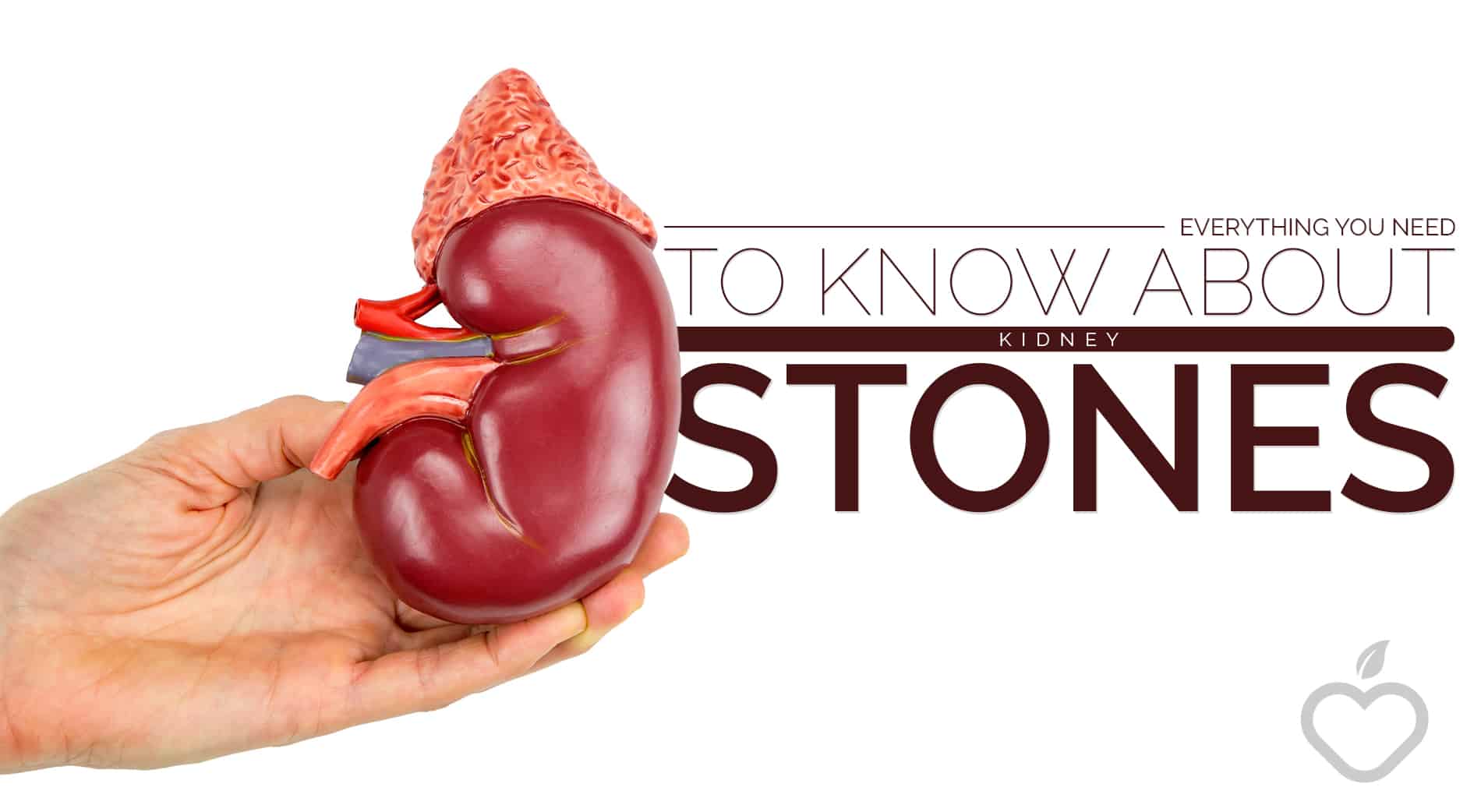What Are Percutaneous Nephrolithotomy And Percutaneous Nephrolithotripsy
These procedures are treatments for kidney stones that are used in patients with large or irregularly shaped kidney stones, people with infections, stones that have not been broken up enough by SWL or those who are not candidates for another common stone treatment, ureteroscopy. Stones that are bigger than 2 cm require this procedure.
Both procedures involve entering the kidney through a small incision in the back. Once the surgeon gets to the kidney, a nephroscope and other small instruments are threaded in through the hole. lf the stone is removed through the tube, it is called nephrolithotomy. lf the stone is broken up and then removed, it is called nephrolithotripsy. The surgeon can see the stone, use high frequency sound waves to break up the stone, and “vacuum” up the dust using a suction machine.
This is what the words mean:
- Percutaneous means through the skin
- Nephrolithotomy is a combination of the word roots nephro- , litho- and -tomy
- Nephrolithotripsy is a combination of the word roots nephro- , litho , and -tripsy
Types Of Kidney Stones
- Calcium stones are the most common type of kidney stones. They are usually made of calcium and oxalate , but are sometimes made of calcium and phosphate.
- Uric acid stones form when your urine is often too acidic. Uric acid can form stones by itself or with calcium.
- Struvite stones can happen when you have certain types of urinary tract infections in which bacteria make ammonia that builds up in your urine. Struvite stones are made of magnesium, ammonium and phosphate.
- Cystine stones are made of a chemical that your body makes naturally, called cystine. Cystine stones are very rare, and happen in people who have a genetic disorder that causes cystine to leak from the kidneys into the urine.
Kidney stones can be as small as a grain of sand or as largesometimes larger thana pearl. They can stay in your kidneys or travel through your ureters , and out of your body with your urine. When a kidney stone moves through your ureters and out your urethra with your urine, it is called passing a kidney stone. A kidney stone can also get stuck in your urinary tract and block urine from getting through. When you pass a kidney stone or a large kidney stone blocks the flow of your urine, it can be very painful.
Increase Your Intake Of Stone Inhibitors
Several substances found in the urine have been clearly shown to reduce the formation of calcium based kidney stones. Two of the most important are citrate and magnesium.
Lemon juice has been found to increase the level of citrate in the urine. Real lemonade is an excellent way to increase both your citrate and fluid intake.
Nutritional supplements containing magnesium, potassium and citrate may also help to increase the concentration of stone inhibitors in the urine. Ask your urologist before starting any regimen of nutritional supplementation.
Read Also: Can Kidney Stones Affect Your Psa Count
Risk Factors You Cannot Control
Things you can’t control include:
- Age and gender.
- Men between the ages of 30 and 50 are most likely to get kidney stones.
- Postmenopausal women with low estrogen levels have an increased risk for kidney stones. Women who have had their ovaries removed are also at increased risk.
Homeopathy For Kidney Stones

Naturopathic physicians often recommend homeopathy treatments for kidney stones.
Some of the popular homeopathic remedies for kidney stones include Ocimum canum, Berberis vulgaris, Pennyroyal, Cantharis, and Colocynthis.
These remedies may address different symptoms of kidney stones such as sharp pain, burning sensation while urinating, frequent urination, vomiting, and nausea.
It is recommended that you consult an expert before resorting to these homeopathic remedies for kidney stones. He/she may prescribe you the appropriate dosage.
Also Check: Do Multivitamins Cause Kidney Stones
Diagnosis Screening And Prevention
Patients with urinary stones generally present with the typical reno-ureteral colic and less frequently with loin pain; associated manifestations could be gross haematuria, vomiting and sometimes fever. However, patients can also be asymptomatic. A diagnosis of nephrolithiasis is only confirmed when a stone has been passed, has been extracted or destroyed, or has been identified in the urinary tract by imaging studies or surgery. Otherwise, other possible causes of the above manifestations should be investigated.
Symptoms of nephrolithiasis in children are often unclear. The only manifestations are microhaematuria or recurrent episodes of macrohaematuria; pollachiuriadysuria; acute or subacute episodes of recurrent abdominal pain, located in the flank in older patients or diffuse in the abdomen in younger patients; urinary tract infections; or, finally, nonspecific manifestations such as irritability, vomiting, unmotivated crying and motor agitation in those <2 years of age. In the absence of a clear demonstration of a stone, the only clue that these manifestations are due to urinary stones could be the observation of concurrent hypercalciuria or hyperuricosuria.
Calcium Oxalate And Calcium Phosphate Stones
Calcium stones are the most common type of kidney stones, and can be either calcium oxalate or calcium phosphate. As mentioned, good hydration is important to prevent calcium stones. It may be surprising, but results of a randomized clinical trial show that people with calcium kidney stones should not cut back on dietary calcium. In fact, they should consume the recommended daily allowance of calcium . Why? Calcium binds to oxalate in the intestine and prevents its absorption through the gut, so there is less in the urine to form stones. Ideally, calcium should come from food. Talk with your doctor before taking calcium supplements, and increasing fluid intake might be beneficial depending on how much calcium you take.
Foods high in oxalates can increase the amount of oxalate in the urine. Consume these in moderation.
Calcium phosphate stones are less common than calcium oxalate stones. Causes include hyperparathyroidism , renal tubular acidosis , and urinary tract infections. It is important to understand if one of these conditions is behind the formation of calcium phosphate stones.
Good hydration can help prevent recurrence of calcium stones. In addition, thiazide diuretics such as hydrochlorothiazide can help the kidney absorb more calcium, leaving less of it in the urine where it can form stones. Potassium citrate is another medication that can bind to calcium and help keep calcium oxalate and calcium phosphate in the urine from forming into stones.
Also Check: What Std Can Cause Kidney Infection
Kidney Stone Causes Symptoms Treatments & Prevention
Your kidneys remove waste and fluid from your blood to make urine. Sometimes, when you have too much of certain wastes and not enough fluid in your blood, these wastes can build up and stick together in your kidneys. These clumps of waste are called kidney stones.
Tests To Diagnose Kidney Stones
Your doctor may do one or more of the following tests to help diagnose kidney stones, see where they are located, and find out if they are causing or may cause damage to the urinary tract.
- A non-contrast spiral computed tomography scan is a special type of CT scan that moves in a circle.
- An ultrasound examination uses reflected sound waves to produce a picture of your urinary tract.
- Urinalysis and urine cultures test your urine.
- An abdominal X-ray gives a picture of the kidneys, the bladder, and the tubes that connect the kidneys to the bladder .
Recommended Reading: Which Salt Is Better For Kidney Patients
Reduce Your Protein Intake
Studies have shown that increased protein intake will lead to higher levels of calcium, uric acid and oxalate in the urine all of which can increase the risk of calcium stone formation. Low-carb diets, which are generally high in protein and fat, are NOT recommended for individuals with a history of calcium kidney stones. To reduce your risk of calcium stone formation, reduce your intake of animal protein, and, instead, substitute plant protein sources such as legumes, nuts and seeds, and whole grains.
Staying Hydrated Is Key
Drinking plenty of fluids is a vital part of passing kidney stones and preventing new stones from forming. Not only does the liquid flush out toxins, but it also helps move stones and grit through your urinary tract.
Although water alone may be enough to do the trick, adding certain ingredients can be beneficial. Be sure to drink one 8-ounce glass of water immediately after drinking any flavored remedy. This can help move the ingredients through your system.
Talk to your doctor before getting started with any of the home remedies listed below. They can assess whether home treatment is right for you or if it could lead to additional complications.
If youre pregnant or breastfeeding, avoid using any remedies. Your doctor can determine whether a juice may cause side effects for you or your baby.
Also Check: Is Chronic Kidney Disease The Same As Renal Insufficiency
Risk Factors You Can Control
Things you can control include:
- How much fluid you drink. The most common cause of kidney stones is not drinking enough water. Try to drink enough water to keep your urine light yellow or clear like water .
- Your diet. Diets high in protein, sodium, and oxalate-rich foods, such as dark green vegetables, increase your risk for kidney stones. If you think that your diet may be a problem, schedule an appointment with a dietitian and review your food choices.
Green Tea And Catechins

Green tea and green tea extracts, which are rich in phytochemicals called catechins, have been shown to inhibit calcium oxalate stone formation . In an animal study, the flavonoids catechin and epicatechin were evaluated for their ability to modulate kidney stone biochemical risk factors. Compared with rats given no treatment, those that received catechin or epicatechin had lower kidney calcium and fewer crystals deposited in the kidneys. The authors of the study suggested the flavonoids may have protected the interior of the kidneys from oxidative damage that could initiate stone formation .
Another study, with laboratory and rodent model components, investigated the effects of catechin on calcium oxalate-mediated kidney damage. In the laboratory setting, catechin protected kidney cells from the oxidative stress ordinarily induced by calcium oxalate. In the animal component of the study, catechin appeared to protect rats from the oxidative effects of calcium oxalate .
You May Like: What Herbs Help The Kidneys
Should I Cut Out All Foods That Have Oxalate Or Calcium
No, this is a common mistake. Some people think that cutting out all foods that have oxalate or all foods with calcium will keep stones from forming. However, this approach is not healthy. It can lead to poor nutrition and can cause other health problems. A better plan? Eat and drink calcium and oxalate-rich foods together during a meal. Doing this helps oxalate and calcium bind to one another in the stomach and intestines before reaching the kidneys, making it less likely for kidney stones to form in the urine.
Plan Your Plate For Kidney Stones
How Common Are Kidney Stones
Each year, more than half a million people go to emergency rooms for kidney stone problems. It is estimated that one in ten people will have a kidney stone at some time in their lives.
The prevalence of kidney stones in the United States increased from 3.8% in the late 1970s to 8.8% in the late 2000s. The prevalence of kidney stones was 10% during 20132014. The risk of kidney stones is about 11% in men and 9% in women. Other diseases such as high blood pressure, diabetes, and obesity may increase the risk for kidney stones.
Read Also: How Do Doctors Break Up A Kidney Stone
What Are Kidney Stones
Kidney stones are made of salts and minerals in the urine that stick together to form small “pebbles.” They can be as small as grains of sand or as large as golf balls. They may stay in your kidneys or travel out of your body through the urinary tract. The urinary tract is the system that makes urine and carries it out of your body. It is made up of the kidneys, the tubes that connect the kidneys to the bladder , the bladder, and the tube that leads from the bladder out of the body .
When a stone travels through a ureter, it usually causes pain and other symptoms.
What Is The Treatment For Cystinuria
Treatment starts with doing things to keep stones from forming.; For adults and children, this means drinking more water, reducing salt, and eating less meat.; If these steps are not enough, you may also need to take special medicine to help keep stones from forming.
- Drinking more water.;Drinking lots of water will lower the ability for the cystine to form stones in the urine. Ask your healthcare provider how much water you should drink each day to help keep stones from forming.
- Changing your diet.; Cystine stones are less able to form in urine that is less acidic.;; Eating more fruits and vegetables can make the urine less acidic.; Eating meat produces urine that has more acid, which can increase your risk for cystine stones.
- Reducing salt.; Eating less salt can help keep cystine stones from forming. Try not to eat salty foods, including potato chips, French fries, sandwich meats, canned soups, and packaged meals.
- Medicine.; Some people may also need to take prescription medicine to help keep stones from forming.; Different medicines work in different ways.; Some types help to keep your urine less acidic.; Other types help keep cystine stones from forming by not allowing crystals to come together.; Your healthcare provider can explain these different options and help you find the right medicine for you.
You May Like: Can A Kidney Infection Kill Me
Removing A Stone With Sound Waves
|
Kidney stones can sometimes be broken up by sound waves produced by a lithotriptor in a procedure called extracorporeal shock wave lithotripsy . After an ultrasound device or fluoroscope is used to locate the stone, the lithotriptor is placed against the back, and the sound waves are focused on the stone, shattering it. Then the person drinks fluids to flush the stone fragments out of the kidney, to be eliminated in the urine. Sometimes blood appears in the urine or the abdomen is bruised after the procedure, but serious problems are rare. |
A ureteroscope can be inserted into the urethra, through the bladder and up the ureter to remove small stones in the lower part of the ureter that require removal. In some instances, the ureteroscope can also be used with a device to break up stones into smaller pieces that can be removed with the ureteroscope or passed in the urine . Most commonly, holmium laser lithotripsy is used. In this procedure, a laser is used to break up the stone.
Percutaneous nephrolithotomy may be used to remove some larger kidney stones. In percutaneous nephrolithotomy, doctors make a small incision in the person’s back and then insert a telescopic viewing tube into the kidney. Doctors insert a probe through the nephroscope to break the stone into smaller pieces and then remove the pieces .
Making the urine more alkaline may sometimes gradually dissolve uric acid stones. Other types of stones cannot be dissolved this way.
Symptoms Of Kidney Stones
Many people with kidney stones have no symptoms. However, some people do get symptoms, which may include:
- a gripping pain in the back usually just below the ribs on one side, radiating around to the front and sometimes towards the groin. The pain may be severe enough to cause nausea and vomiting
- blood in the urine
- cloudy or bad smelling urine
- shivers, sweating and fever if the urine becomes infected
- small stones, like gravel, passing out in the urine, often caused by uric acid stones
- an urgent feeling of needing to urinate, due to a stone at the bladder outlet.
Don’t Miss: Is Lemon Suitable For Kidney Patient
Risk Factors For Kidney Stones
The greatest risk factor for kidney stones is making less than 1 liter of urine per day. This is why kidney stones are common in premature infants who have kidney problems. However, kidney stones are most likely to occur in people between the ages of 20 and 50.
Different factors can increase your risk of developing a stone. In the United States, white people are more likely to have kidney stones than black people.
Sex also plays a role. More men than women develop kidney stones, according to the National Institute of Diabetes and Digestive and Kidney Diseases .
A history of kidney stones can increase your risk. So does a family history of kidney stones.
Other risk factors include:
- frequent need to urinate
- urinating small amounts of urine
In the case of a small kidney stone, you may not have any pain or symptoms as the stone passes through your urinary tract.
Medicine To Prevent Stones

Which medicine you take depends on the type of stones you have.
Calcium stones
- Thiazides.
Uric acid stones
Some kidney stones are made of uric acid, a waste product that normally exits the body in the urine. To prevent these types of stones, you may take:
- Allopurinol.
- Sodium bicarbonate.
Cystine stones
A very small number of stones are made of a chemical called cystine. Medicines to prevent them include:
- Penicillamine.
- Captopril.
Struvite stones
Some struvite stones form because of frequent kidney infections. If you have a struvite stone, you will most likely need antibiotics to cure the infection and help prevent new stones from forming. You may need surgery to remove the stone.
Don’t Miss: Does Lyme Disease Affect Your Kidneys